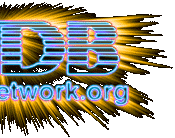 |
||||||
 |
||||||
 |
||||||
 |
||||||

Financial Famine Starves Station
| By spring, 1971, morale was getting to be a problem for some at WIDB. Despite the activity in the programming department, engineering was approaching an early nadir. Dan Mordini had left and Bob Huntington was Chief Engineer. Jerry Chabrian, who had done much engineering work himself, was also gone. It had been expected that the eight transmitters would need lots of maintenance, especially in the first year. Some would have to be relocated, most would require re-tuning, and a few might need replacement tubes. Sure enough, by late winter, many transmitters had problems. More and more floors in the Towers could not pick up WIDB. Neely went out entirely. At Steagall, Thompson Point, a steam leak overheated the tramsmitter and it blew. In the Triads, the "background" hum was so loud on 600 AM that it drowned out WIDB's music and programs. If these transmitter needs had been fully addressed promptly, the effect on the station would have been minimal. But there were other problems, more significant problems. The station was out of money. It was still in its first year of operation, and its $15,000 allocation had been spent. Apparently, money originally earmarked for engineering maintenance and station operations had been spent for the new President Board. The board had been installed and it was great. But now it was March, transmitters needed repair, and there was no cash. Even worse, there was no money for the UPI machine, so it was disconnected. This was a devastating blow to the news department, especially with the ongoing war and draft and the specter of the riots recurring in spring. "Part of the problem was that nobody knew how to fix the transmitters," recalled Jim Hoffman. "Were they still under warranty? Did they have to be pulled out to fix? Was the problem the florescent lights in the dorms (which created unlistenable hum)? Why did they work before and not now? These unanswered questions, plus lack of funds, prevented the transmitters from being fixed quickly." There had to be some money somewhere. Charlie applied for additional Student Activity Funds. None were available, but WIDB could get a "loan." But the "loan" could only be obtained if WIDB would have a plan to pay back the loan from funds received before June. No student activity fees would be available until July, at the earliest. The loan was needed immediately. Help came from a most gratifying source. East campus residents had been complaining that they could not receive WIDB. This was flattering because as the transmitter problems reduced coverage, WIDB was missed. Thompson Point residents were complaining that they, also, could not receive WIDB (for different reasons). Charlie and other staff heads took their cue and approached the East Campus and Thompson Point Residence Hall Councils for a financial handout. After all, WIDB's purpose was to serve dorm residents, and WIDB was located in a dorm. Charlie was able to secure almost $1500, and most of the transmitter problems on East Campus were fixed by the end of spring quarter, and a plan was hatched to increase coverage at Thompson Point. But the effects of reduced coverage and being broke continued through April and May. News was being read out of newspapers (when it was done at all). Jim Hoffman had begun a special oldies show with a novel concept. The show not only solicited requests, but it recorded the telephonic requests and played them on the air, over the bridge of the song. This show was perhaps the most popular one on WIDB. Winter quarter, there was an overwhelming number of telephonic requests. By April, the station's reduced coverage was painfully apparent, as, suddenly, few requests were received during the oldies show. Undaunted, the production engineer who recorded the telephonic requests, decided to "manufacture" them. He cajoled staff members who happened to be hanging around the station to call the request line from the office line, "pretend" to be listeners, and the engineer would record their "requests." This may have sounded OK over the air, but it made staff members feel silly. Newsman Allan J. Friedman recorded his request for "Mama Told Me (Not to Come)" by Three Dog Night, but, feeling silly, Al registered his protest in a creative way. First, he refused to use a phony name. Second, instead of requesting the record by title, he requested it by its serial number in the library. So, (if one could listen), one heard "Hi, this is Al, from Schneider, and I'd like to hear T-2-1 by Three Dog Night." Hear this golden WIDB moment! Some requests made Jim Hoffman also feel silly. The engineer cajoled another newsman into making a request, and it was getting to sound pretty lame. A voice claiming to be "Alfred" requested "Venus" by Shocking Blue. Jim could not control his on-air chuckling. And here is this classic bit of audio. "Alfred" was actually a shy WIDB newsman, who didn't do much at the station except show up for his shift every week and that was about it. Having joined WIDB in late winter, 1971, he became the most powerful and influential figure with respect to WIDB's future, its role in the university and community, and with WIDB's members. His name was Joel Preston. |
|
|||
|
|
|||
|
Message Board | The Source Contact |